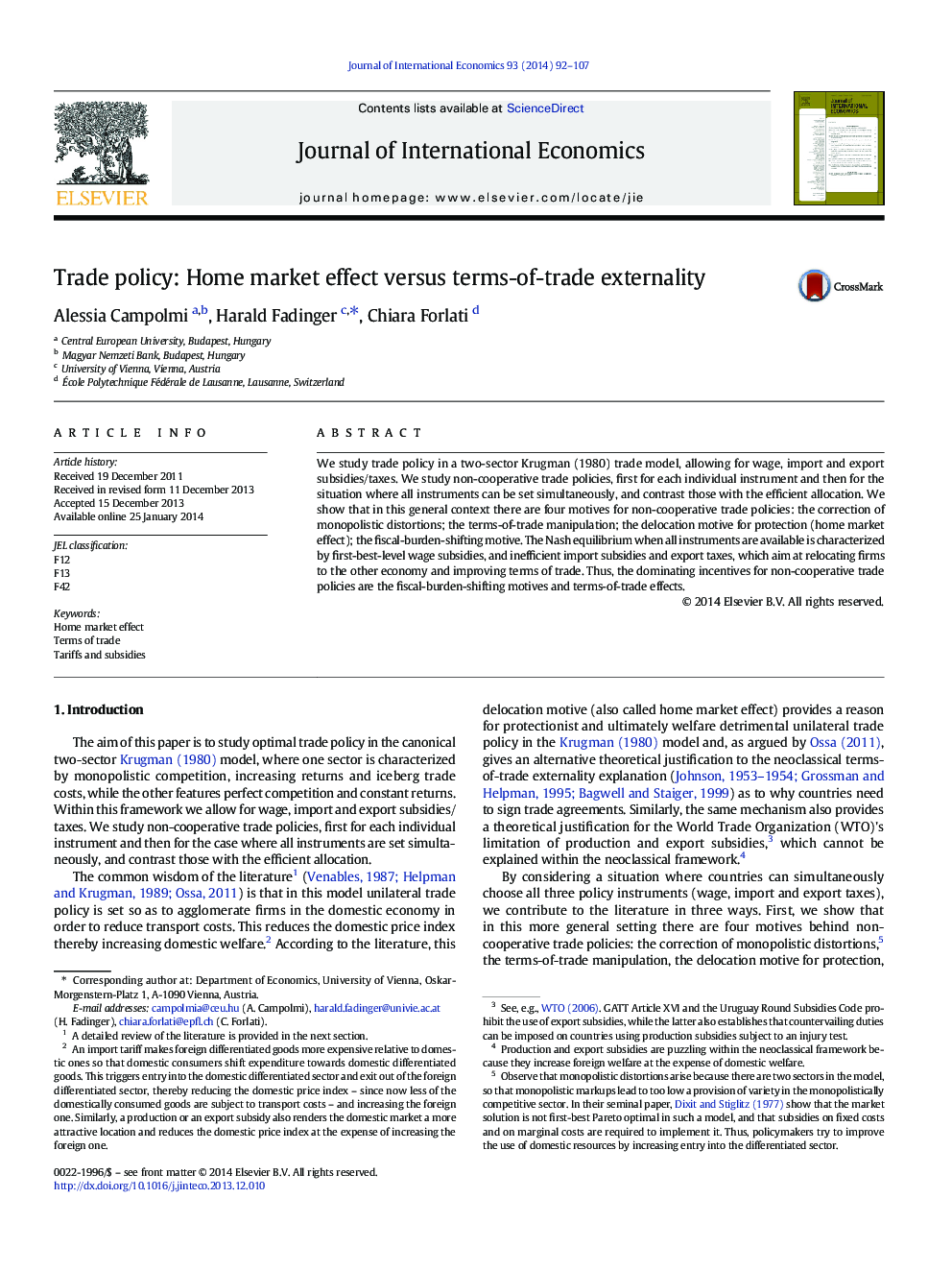| Article ID | Journal | Published Year | Pages | File Type |
|---|---|---|---|---|
| 10476995 | Journal of International Economics | 2014 | 16 Pages |
Abstract
We study trade policy in a two-sector Krugman (1980) trade model, allowing for wage, import and export subsidies/taxes. We study non-cooperative trade policies, first for each individual instrument and then for the situation where all instruments can be set simultaneously, and contrast those with the efficient allocation. We show that in this general context there are four motives for non-cooperative trade policies: the correction of monopolistic distortions; the terms-of-trade manipulation; the delocation motive for protection (home market effect); the fiscal-burden-shifting motive. The Nash equilibrium when all instruments are available is characterized by first-best-level wage subsidies, and inefficient import subsidies and export taxes, which aim at relocating firms to the other economy and improving terms of trade. Thus, the dominating incentives for non-cooperative trade policies are the fiscal-burden-shifting motives and terms-of-trade effects.
Related Topics
Social Sciences and Humanities
Economics, Econometrics and Finance
Economics and Econometrics
Authors
Alessia Campolmi, Harald Fadinger, Chiara Forlati,
